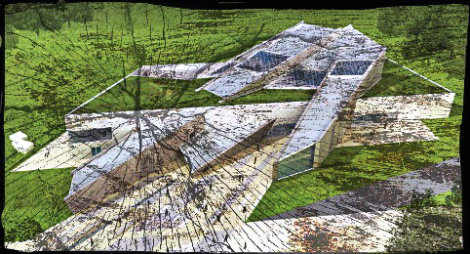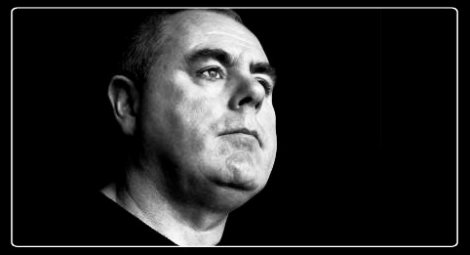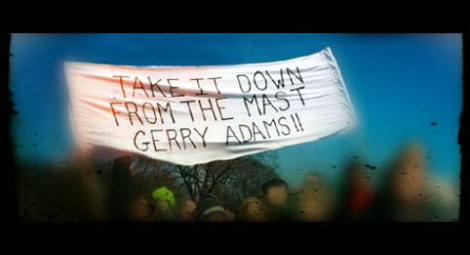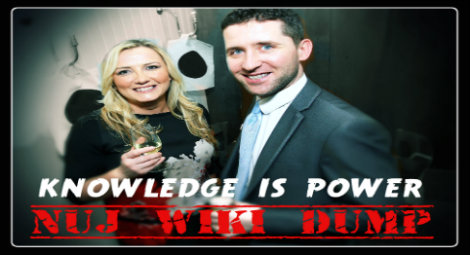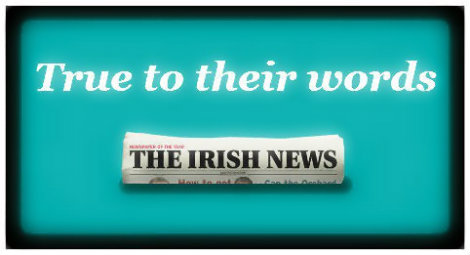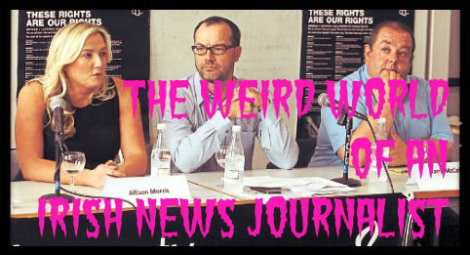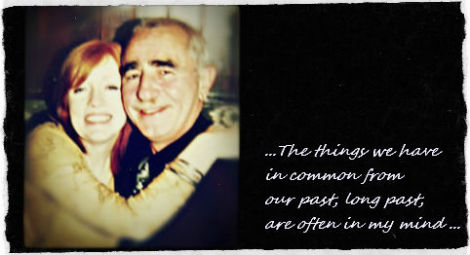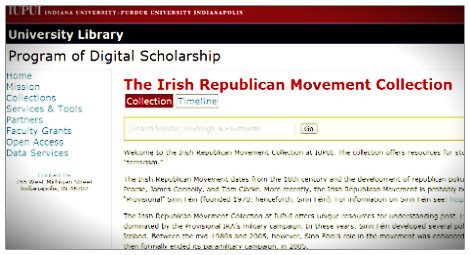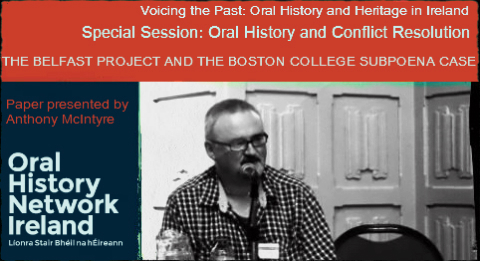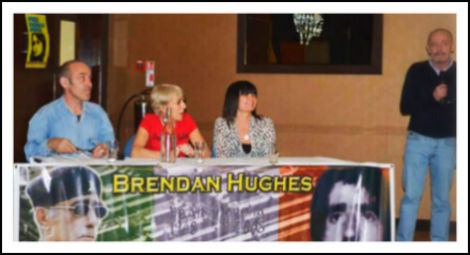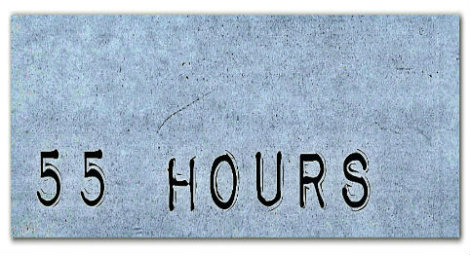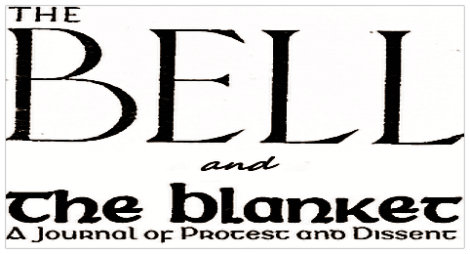
It is an honour to speak here today at the resting place of this city’s IRA dead. At the same time it is a very humbling experience. The sheer vastness of what these dead comrades lost makes my own experiences appear microscopic by comparison. The IRA dead not only rest in the cold clay at our feet, they occupy a very hallowed space in our memories. I do not need a history book to remind me that Ethel Lynch died in this city in 1974, or that Colm Keenan was cut down two and a half years earlier.
And it goes without saying that no tribute to the republican dead could ever be complete if it was not buttressed by an embracing of the fallen volunteers of the INLA. Michael Devine and Patsy O’Hara are names that sit eternally in the minds of the people of this city as indelibly as the names Padriac Pearse or James Connolly are etched to some depth in the consciousness of Irish republicans.
All of those who gave their lives in pursuit of a better society unfettered by British interference or simply because they resented armed oppression and felt compelled to resist in kind, shared in the totality of loss irrespective of what republican army they served in. Their loss was complete. And with the very last breath exhaled from their dying bodies they knowingly struck out against the perfidy of the British state. We remember each of them.
Thirty three years ago I too was a member of the Derry Brigade of the IRA, by dint of where I was at that time imprisoned, Magilligan, alongside some who stand here today. In Cage F I beamed with pride when as a 17 year old I was a member of the colour party commemorating the republican dead. Then as a teenage volunteer intent on returning to the ranks of the IRA once freed, I had no idea that three decades later we would be standing at the gravesides of dead republicans in a Northern state even more British than Thatcher’s Finchley – Finchley remember has no MI5 knock out centre. Britain has no strategic reason to keep Finchley. Whatever else, the North of Ireland has more strategic value to the current British state than Finchley.
Nor as I stood on that exercise yard-cum-parade ground holding the flag of the Derry Brigade did I for one moment consider that the theocratic bigot Ian Paisley would be extolled and hailed as leader of the British state in the north by some of those who were in Magilligan by my side. That was the stuff of nightmares. He who constantly screamed throughout his career that republican graves were not yet full would be lauded as our leader, an example to be followed.
Let us be very clear about the dead volunteers of the IRA and INLA. They died opposing British rule in all its forms. They died opposing a power sharing executive at Stormont which was the political option long favoured by the British state as the alternative to republicanism. They died opposing the partition principle whereby a majority in the North would exercise a veto over the continued division of Ireland. They died opposing a British police force regardless of what name it chose to go under.
Those are the indisputable truths that today speak their name. We do not know where these dead volunteers would have stood today had they survived the conflict. It would be under the most false of pretences to assert that we can infer from their lives where they might stand many years after their passing. They left us no written words that I am aware of with which we could guide our intellects if we were of a mind to attempt some judgement on the matter. So far removed was today’s outcome from their lives and times that they never felt remotely moved to comment on how such an outcome should be viewed. Beyond conceivability, it merited no discussion.
For this reason it is a sad spectacle to watch the memory of dead volunteers being smuggled into the odious Stormont, a place they sought to destroy while alive, or prevent ever being resurrected at the moment they died. Their memory is being used as a smokescreen for the ambitions of others. These others are not legitimising our dead but are cynically using the dead to legitimise themselves. The republican dead must be allowed to rest in peace, their memories undisturbed by those who would seek to recruit them to a cause they never recognised throughout their lives or at the time of their deaths. The shameful desecration of their memory by political vandals should cease forthwith.
To suggest that the dead IRA volunteers might today be Sinn Fein MLAs has its own logic which is never fully explained for fear that it is so abhorrent that those suggesting it would be scorned for ever and a day. We are never told that in order to have served as a MLA, the republican dead would also have had to undertake to inform the British Police Service of Northern Ireland about people engaged in the type of activities they were involved in when they were cut down. And that by extension such information would be passed from the British PSNI onto MI5 so that the type of murderous operation put together to execute IRA volunteers in Gibraltar could also be hatched today against those of similar mind. Does anybody here seriously believe that Mairead Farrell would assent to the passing of information to the British police so that MI5 might use it to organise the murder of republicans? Given the role MI5 played in her execution the shameless alone come equipped with the necessary chutzpah to suggest that she too might just have stooped to their level.
Let us collectively defy anyone to honestly name just one IRA or INLA volunteer who died so that their colleagues could become micro ministers in Britain’s rubber stamp parliament. We gather here today to honour every one of those volunteers who most assuredly died in pursuit of anything but micro ministries.
At the same time we should never seek to claim that the republican dead would see matters in the way that we do. Nor do we, in order to honour them, have to hold onto every belief they cherished and shared with them while they were alive. It has been said that a thing is not necessarily true because a person dies for it. It is most certainly even less true if a person lies for it. Alongside our bonds of comradeship with our dead sits the truth that we owe them. We will not stand at their hallowed places of rest and spout lies either about them or about ourselves. I make no pretence about armed struggle. I no longer support it. It produces dead republicans and never ends British rule. And invariably those republicans die so that some Caesar might become great. And when we depart from here today the heaviness of the sacrifice of those we leave behind will burden our hearts. Let it serve to strengthen our resolve that never again should republicans go to their graves as a result of anything other than natural causes.
Republicans have by their very instinct always ended up opposed to treaties with the British for the simple reason that every treaty signed since 1916 has never advanced republicanism and has always anchored partition. A brief familiarity with republican history reveals that much. And anti-treaty republicans, whether they believe in the doctrine of armed force or not, are always excoriated, maligned and sometimes killed by those who favour treaties. While such treaties never ever produce an Ireland free from British interference they invariably produce a situation where the treatyites, aided by the British, seek to crush the very philosophy they once took up arms in defence of. Poachers becoming gamekeepers is as old as the game for which the powerful have always needed keepers.
It is worthwhile noting that it is on Easter Sunday that we gather here to honour the republican dead. Easter Sunday republicanism and Good Friday nationalism are separated by a mere two calendar days, yet stand light years apart politically. While we gather to honour our fallen the Good Friday types will gather ostensibly to honour the same dead but will use their platform to honour Paisley and lament his departure. Losing him and Tony Blair in one twelve month period will cause them more grief than any amount of republican dead.
Lately, when discussing political matters with a diverse range of people, I have been frequently asked how so many people in Sinn Fein believe the rubbish that is fed their way in terms of a united Ireland being closer than ever before. Unionists who for long were paranoid about every little move are now completely relaxed about the longevity of the union with Britain. British officials openly admit to having seen off the republican challenge to the union and smile condescendingly when probed about the extent to which agent penetration helped that process along. Dublin officialdom is supremely confident that the electoral challenge from Sinn Fein is as threatening as last year’s snow. Journalists and academics sneer with derision at the ludicrous claims made by Sinn Fein columnists that the struggle was always for equality or that the Good Friday Agreement was a serious advance on Sunningdale.
Jonathan Powell’s disclosures at the beginning of this week show clearly that an end to partition was never part of the peace process agenda. In fact a united Ireland was politically closer under Harold Wilson than it ever was with Tony Blair at the helm of the British state. When Gerry Kelly claims that the genius of the Good Friday Agreement was that it allowed trust to grow he obscures a more fundamental act of ingenuity on its part. The genius of the GFA is that it got Gerry Kelly to stand on his head and claim to believe everything he served a life sentence opposing. Let it never be said of us that we believed the nonsense just because some political snake charmer could come along and bamboozle us with peace processery. We are not their snakes and will not succumb to their charm.
And there is a corollary to this. It is this. Because we do not believe the guff we are ethically obliged to lead a strategy of ethical resistance to that which we do not believe. If it is true that Charles Haughey as Taoiseach was informed in 1987 by an element in the IRA leadership that a place in the internal government of the North of Ireland would be enough to end the conflict why then were IRA volunteers sent out to risk their lives in pursuit of a goal that had been abandoned? And if the Haughey government, as is alleged by the Sinn Fein leadership, was responsible for providing the British with information that led to the deaths of three IRA volunteers in Gibraltar, why was that government ever provided with evidence of IRA intent in the first place? How many volunteers lost their lives because the British knew that killing them was the most expedient method of getting them out of the way so that the peace process could succeed?
If such questions are painful then the answers might prove even more hurtful. But how can we as republicans demand truth inquiries yet fail to inquire into all the circumstances that pertain to the deaths of our own comrades? We should not try to shape the answers so that they conform to our own beliefs. We must display the courage to accept answers that likewise challenge our views. But we must never refrain from asking the questions. We should never stand at the graves of those who lost most in this struggle just to resolve to come back and do the same next year. We must ask and ask and ask again and in our quest be silenced by no one.
Throughout the history of the past four decades the British were a force for bad. And when they settled up with those they fought against they did it on terms most suitable to Britain. Our volunteers of the IRA and INLA do not lie in these graves because of some theological dispute between Protestants and Catholics. They are entombed because the behaviour of the British state, which in this very city inflicted mass murder on an unarmed and unsuspecting civilian population, forced them into an armed conflict not of their making.
As we walk from this hallow place today let us resolve never to absolve the British state of its responsibility for the conflict here. Greatest amongst the many lies that Britain has inflicted upon us is the Good Friday Agreement. It is a lie because it is an answer to a fraudulent question that Britain posed with its own interests above all others firmly in mind – how best to find an internal solution to a problem of internal conflict. This was not an internal conflict that required an internal solution. Our dead volunteers were not involved in some squalid conflict with unionists. They were at war with the British state which repressed, murdered, tortured, colluded, censored, manipulated the justice system, framed and imprisoned the innocent, absolved the guilty and sought to criminalise those who resisted.
Our volunteer dead were not criminals. They rebelled against the criminal state of Britain which violated every one of its own laws. When the British state refused to abide by its own laws it was ill placed to criminalise others for not obeying them. Our volunteer dead pursued neither wealth within nor power over their community. They sought freedom and found death. They lost their lives and kept their dignity unlike many of their leaders who kept their lives and lost all dignity.
Volunteer soldiers of the IRA and INLA we are indebted to each of you who lost your lives in the struggle against injustice. And we affirm to strive tirelessly to ensure that your memory is neither corrupted nor hijacked for projects so openly disdained by you when you were alive.
Photos from the Derry Easter Commemoration













